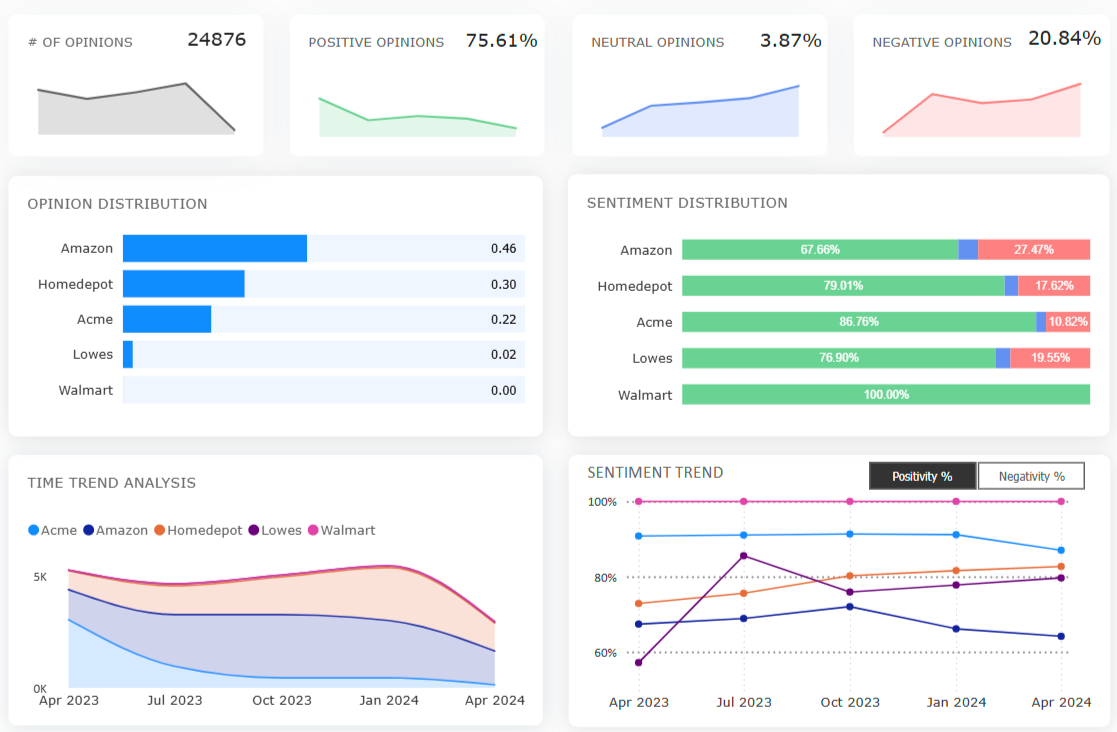🎉 Clootrack recognized by OpenAI for crossing 100 billion tokens in Voice of the Customer analytics →
Read the story


The Middle ast is a region of rich heritage and rapid change, where tradition, luxury, and modernity intersect. The Middle Eastern business landscape has been undergoing changes, driven by technological advancements and the rise of a more diverse consumer base. As a result, companies operating in or targeting this region recognize the importance of focusing on CX to build a loyal customer base and stay competitive. This means understanding the unique blend of tradition and modernity that characterizes Middle Eastern customers and developing strategies that cater to their specific needs and preferences.
Since a lot is happening in the customer experience and customer relationship management, businesses must tap into customers' pulse and market trends in real time to ensure they deliver the right products at the right time. Sometimes, it's hard for some companies to manage customer experience efficiently due to many reasons like lack of customer experience team, budget constraints, lack of support from leadership, or lack of knowledge, etc.; this demands a dedicated agency rooted in the Middle East to assist companies in customer experience management.
Let's check a few trends in the customer experience in the Middle East region that demand the assistance of a dedicated agency:
A key aspect of developing a successful CX strategy in the Middle East is acknowledging and embracing the rapid digital transformation across the region. With the increasing use of smartphones and the internet, companies must consider online and offline touchpoints to engage with customers effectively. This could include offering convenient online shopping options, personalized website experiences, and business to customer interactions, and seamless integration across various digital platforms. However, it is essential to note that while digital channels are becoming more prominent, traditional forms of communication and customer engagement still hold value in the Middle East. This highlights the need for a comprehensive CX approach encompassing traditional and digital touchpoints.
An agency deeply rooted in the local culture understands this blend, enabling it to create a customer experience strategy that resonates with the distinctive sensibilities of Middle Eastern customers.
Each country within the region has its unique preferences, customs, and taboos, making it essential for businesses to tailor their approach accordingly. Understanding and respecting cultural nuances is vital to building trust and establishing long-lasting relationships with Middle Eastern customers. This could range from offering local language support, considering religious holidays in promotional campaigns, or adapting product features to align with specific cultural sensitivities. By prioritizing cultural sensitivity, companies can demonstrate their commitment to learning and meeting the needs of the Middle Eastern customer base and providing them with a positive customer experience and customer satisfaction.
An ideal CX agency rooted in the Middle East recognizes the nuances of the market with more empathy, allowing them to alter their CX operations and strategies accordingly.
In the Middle Eastern business ecosystem, establishing trust is of utmost importance. This can be done by hiring an agency that thoroughly comprehends and respects all regional and cultural parameters. By doing so, brands can enhance their reputation and cultivate customer loyalty. It allows brands to navigate and understand local customs, traditions, and values, increasing understanding, trust, and credibility. This cultural sensitivity also helps businesses avoid miscommunications, misunderstandings, and potential cultural faux pas, ensuring smooth operations and positive interactions.
To get an in-depth idea of the Middle East or a specific market trend in depth, a company or the agency they hired needs to tap into customer experience insights by collecting customer feedback and data from the customer support team. It will be an excellent resource for building a perfect strategy that resonates with real-time customer requirements. For that, it's ideal to adopt a robust customer experience analytics tool that helps to capture real-time insights in the Middle East market. These tools can capture localized and granular data, which will help unravel all nuances in customers' experiences and customer journeys.
Example:
Clootrack analyzed 27K+ customer reviews of 12 top airlines worldwide and revealed major factors that drive poor customer experience and customer churn: customer service, flight delays, and baggage handling.
In this, baggage handling needs special attention as this is one aspect that airports and airlines have full control over. When Clootrack dug deeper, it was found that customers expressed frustration over the inconvenience caused by baggage loss, the financial implications of replacing lost items, and dissatisfaction with the compensation offered by airlines. Concerns around mishandling fragile and expensive items, delayed or lost baggage, and inadequate customer service are prevalent. Issues related to strict weight restrictions, additional charges for exceeding limits, and unhelpful staff when dealing with baggage allowance problems are also highlighted.
When an airline company can learn these insights, it can curate their CX strategy accordingly.
Explore other important customer experience insights from the airline industry here: Global Airline Industry Trends: Customer Review Analysis of Top 12 Airlines Worldwide
In an evolving and growing Middle East market, crafting effective customer experience strategies requires a deep understanding of the blend of tradition and modernity, digital transformation, and localized data analytics. Partnering with a dedicated Middle Eastern CX agency is a good option to stay ahead. By embracing the cultural nuances, leveraging digital touchpoints, and tailoring strategies to local customer needs and customer expectations, businesses can nurture customer loyalty and enhance their brand reputation, customer retention, and customer satisfaction in the Middle East.
Read more: Customer Experience: What it Takes for Success in the Middle East
Analyze customer reviews and automate market research with the fastest AI-powered customer intelligence tool.
